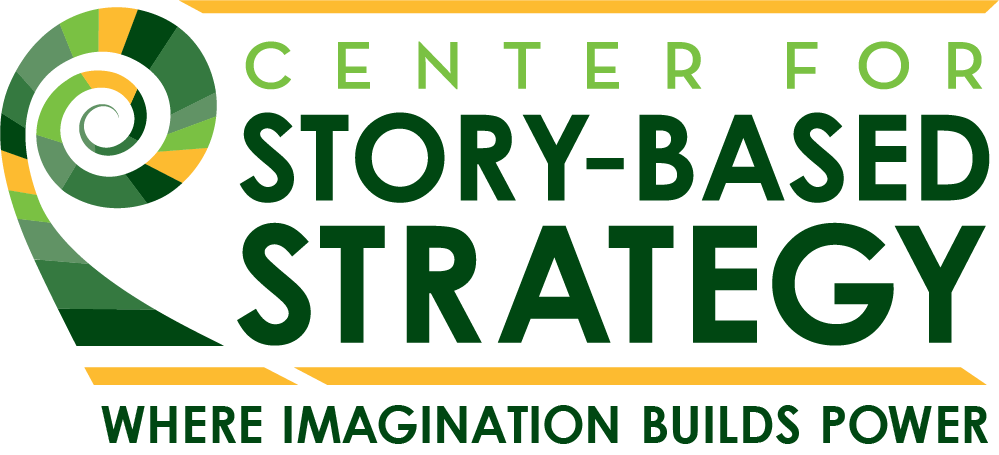Stories of Survival in the Diaspora
Describe yourself in three words.
I am a weaver of diasporal stories.
Jamila Brown, 2020 CSS Fellow
Tell us about yourself.
I am a digital communications consultant and adjunct professor who specializes in creating robust communications strategies for non-profit domestic and international organizations. This includes narrative development, communications training and coaching, digital advocacy and outreach, crisis communications, and strategic communications. My passion lies in connecting and building power throughout the African diaspora and I use digital communications to build, sustain, and nurture cultural ties across the globe.
Tell us about the work you brought into your Fellowship.
In 2019, I attended Center for Story-Based Strategy’s Advanced Practitioner Training and really connected with using storytelling as a methodology to win campaigns, build power, and change the world. Coming from a strong legacy and tradition of storytelling in my own Latin American and Caribbean family, the idea of using something so innate to the ways in which we educate, inform, and pass down culture felt seamless. I decided to apply for the Fellowship to deepen my understanding of story-based strategy through praxis and root it into deep existing cultural (African) practices of storytelling.
Explain to us why you are doing this work.
This work feels like a calling. I am a true baby of the African diaspora with family coming from each part of the Americas (North, South, Central, and Caribbean). I studied international relations, but found that the stories we tell about ourselves and each other, both true and false, are what have the deepest impact on our political, social, and cultural lives. I approached the Rape Crisis Center of South Africa to embark upon a storytelling project that would reverse the deep stigma and shame that surviving sexual assault carries. The narratives of misogyny and sexual violence run deep within the post-colonial South African consciousness. My hope was that we could tap into this already rich tradition of healing and storytelling to overcome the community and familial shame that many place upon survivors.
Share how folks can get involved with your work or see your work’s final product.
People should follow the Rape Crisis Center and donate to become more involved. And please be sure to support The Rape Crisis Center’s #SurvivorSeries launched in April 2021 for Sexual Assault Awareness Month.
How would you describe Story-based Strategy (SBS) to someone who has never heard about it?
Story-based strategy uses the power of storytelling to reveal the truth. It allows us to examine why certain deeply held harmful beliefs persist and create a counternarrative that liberates.
How did SBS affect your work on the project?
I worked with the Rape Crisis Center to identify what barriers exist for survivors to report sexual violence. Subsequently we identified a campaign, “I will go with you” that let’s survivors understand that they are not alone and that the Rape Crisis Center has support for them each step in the reporting and healing process.
How was working on this project, using SBS, different from your work without SBS?
This work started by doing a deep interrogation of societal beliefs around sexual violence. The pervasiveness of sexual violence exists because society enables and supports it. We spent most of our time while crafting the strategy to understand what people, structures, and systems uphold and are complicit in this mindset.
Built upon Cornerstones and the Battle of the Story, “I will go with you” was created in response to the isolation and seemingly insurmountable barriers survivors face when reporting sexual violence in South Africa. Sexual violence is a vast topic, so we first identified our goal — to increase reporting. While the South African court system is deeply flawed, we also recognize that reporting is essential to stopping the pervasiveness of sexual violence. Consequently, we spent the majority of our time looking at the Underlying Assumptions to identify ways in which to decrease barriers and stigma in reporting.
If you could have another iteration of your work, how would it have changed?
Another iteration of this work would focus on men and their role in ending sexual violence. So much of the societal pressure is on women to “not get raped,” but the true reality is that the onus is on the perpetrators. Involving men in a campaign that promotes and praises consent is essentially the next phase of the project.
In this potential project using the drama triangle will be instrumental in moving South African men from the role of villain to hero. Sexual violence is deeply gendered and breaking out of the patriarchal norms is key to liberate women, intersex, and non-binary people who bear the brunt of oppression. By shifting the narrative from “don’t get raped to don’t rape,” we put the onus on men to stop sexual violence and promote the narrative of consent.
Do you think SBS will change how you relate to future work in collaboration with others? How? And why?
As someone who works across countries and cultures, SBS will absolutely be an integral part of my work going forward. Because the context matters and it is critical to ground the work in existing narratives and stories to create a connection, but also to find the liberatory tale within them. I look forward to offering this tool throughout the diaspora and turning to the Global South to guide the way on how the legacy of storytelling they created will free us.

